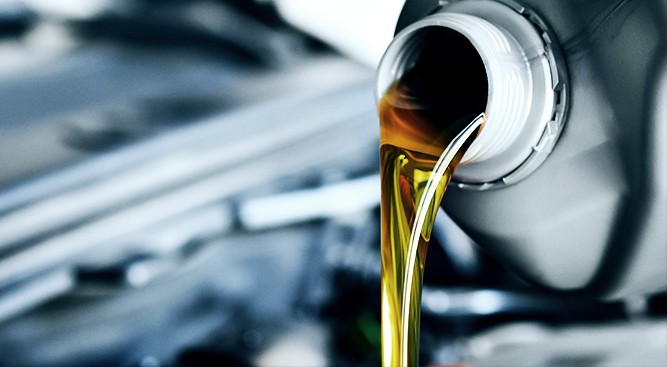In the intricate world of automotive maintenance, the proper care and regular maintenance of fluids are paramount to ensuring optimal performance and longevity of vehicles. As vehicles navigate through varying climates and seasonal changes, the fluids that lubricate, cool, and protect their intricate systems play a pivotal role in safeguarding efficiency and reliability. This extensive guide delves deep into the significance of seasonal fluid changes, offering a comprehensive array of maintenance tips tailored to maximize vehicle performance throughout the year, from scorching summers to freezing winters and everything in between.

Understanding the Crucial Roles of Vehicle Fluids
Fluids are the lifeblood of a vehicle, performing critical functions essential to its operation and longevity:
1. Engine Oil: Engine oil lubricates moving parts, reduces friction, and dissipates heat, ensuring the engine operates smoothly and efficiently. Regular changes are essential to prevent engine wear and maintain performance.
2. Coolant (Antifreeze): Coolant regulates engine temperature, preventing both freezing in cold weather and overheating in hot conditions. It also protects against corrosion within the cooling system, prolonging its lifespan.
3. Transmission Fluid: Transmission fluid facilitates smooth gear shifts by lubricating transmission components and ensuring optimal transmission performance. Regular maintenance prevents wear and tear, enhancing transmission longevity.
4. Brake Fluid: Brake fluid transfers force from the brake pedal to the brake pads, enabling effective braking. It also lubricates and protects brake system components from corrosion, ensuring safety and reliability.
5. Power Steering Fluid: Power steering fluid assists in smooth steering operation by lubricating and protecting the power steering system’s components. Proper maintenance ensures responsive steering and extends component life.
Each fluid type requires specific attention and maintenance to uphold its functionality and prevent potential damage caused by neglect or improper care.
Tailored Maintenance Tips for Different Seasons
Summer Maintenance Guidelines
During hot summer months, vehicles face increased stress and heat, necessitating meticulous fluid maintenance to prevent breakdowns and ensure optimal performance:
1. Engine Oil: Use the recommended viscosity grade for high-temperature conditions. Regularly check oil levels and change it according to manufacturer guidelines to prevent engine overheating and wear.
2. Coolant: Ensure the coolant mixture is suitable for hot weather to prevent engine overheating. Inspect hoses, connections, and the radiator for leaks or signs of wear.
3. Air Conditioning System: Have the air conditioning system inspected for leaks and recharged if necessary to maintain efficient cooling performance during scorching temperatures.
4. Tire Pressure and Fluid Levels: Monitor tire pressure regularly and ensure all fluid levels, including windshield washer fluid and brake fluid, are adequate for optimal vehicle operation.
Winter Maintenance Recommendations
In cold winter conditions, proactive fluid maintenance is essential to prevent freezing, maintain vehicle stability, and ensure safety:
1. Engine Oil: Switch to a winter-grade oil that flows more easily in cold temperatures to facilitate smoother engine start-up and operation.
2. Coolant: Verify the coolant mixture is appropriate for sub-zero temperatures to prevent freezing and ensure effective heat dissipation. Inspect all cooling system components for leaks or damage.
3. Windshield Washer Fluid: Use a winter-grade windshield washer fluid that contains antifreeze to prevent freezing on contact with the windshield, ensuring clear visibility in snowy conditions.
4. Battery and Electrical System: Ensure the battery and electrical system are in top condition, as cold weather can strain batteries and reduce their effectiveness.
General Maintenance Best Practices
Irrespective of the season, adhering to these universal maintenance practices enhances vehicle reliability and prolongs its lifespan:
1. Regular Fluid Inspections: Schedule routine inspections of fluid levels, quality, and conditions. Look for leaks, contamination, or any signs of fluid degradation.
2. Follow Manufacturer Recommendations: Adhere to the vehicle manufacturer’s recommended service intervals for fluid changes and replacements. Use fluids that meet or exceed their specifications to ensure compatibility and performance.
3. Quality Fluid Products: Invest in high-quality fluids that are suitable for your vehicle’s make and model to maintain optimal performance and reliability.
4. Professional Maintenance Services: For complex fluid systems such as transmissions and brakes, consider professional servicing to ensure thorough inspection, maintenance, and repair.
Conclusion
Seasonal fluid changes are not merely routine maintenance tasks but critical steps in preserving vehicle health and ensuring consistent performance across diverse climates. By understanding the roles of different fluids and implementing tailored maintenance practices, vehicle owners can mitigate potential issues and enjoy smoother driving experiences year-round. Remember, proactive care today ensures your vehicle remains reliable and ready to tackle any weather conditions on the road ahead, promoting safety, efficiency, and peace of mind for every journey.



